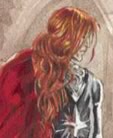| Arrua |
|
MalinornëFAQ Admin, Quenya Moderator & EldameldëPosts: 1205 Send Message |
|
| Gildor-Inglorion |
|
| elena_s_g |
|
| Mellon |
|
| elena_s_g |
|
MalinornëFAQ Admin, Quenya Moderator & EldameldëPosts: 1205 Send Message |
|
MalinornëFAQ Admin, Quenya Moderator & EldameldëPosts: 1205 Send Message |
|
| elena_s_g |
|
| elena_s_g |
|
| Arrua |
|
MalinornëFAQ Admin, Quenya Moderator & EldameldëPosts: 1205 Send Message |
|
| Arrua |
|
| Naneth |
|
| elena_s_g |
|
gwendethAccounts Admin, Sindarin Mod & Head Stargazer of VardaPosts: 5809 Send Message |
|
MalinornëFAQ Admin, Quenya Moderator & EldameldëPosts: 1205 Send Message |
|
MalinornëFAQ Admin, Quenya Moderator & EldameldëPosts: 1205 Send Message |
|
| elena_s_g |
|
| Laurel |
|
MalinornëFAQ Admin, Quenya Moderator & EldameldëPosts: 1205 Send Message |
|
| Laurel |
|
MalinornëFAQ Admin, Quenya Moderator & EldameldëPosts: 1205 Send Message |
|
| Naneth |
|
MalinornëFAQ Admin, Quenya Moderator & EldameldëPosts: 1205 Send Message |
|
| Iavas |
|
| elena_s_g |
|
| Laurel |
|
MalinornëFAQ Admin, Quenya Moderator & EldameldëPosts: 1205 Send Message |
|
| jenise |
|
| Iavas |
|
| FÃriel |
|
MalinornëFAQ Admin, Quenya Moderator & EldameldëPosts: 1205 Send Message |
|
| Iavas |
|
| elena_s_g |
|
 Author
Author








 RE: the questions of eager learners -keep
RE: the questions of eager learners -keep . That could be one way to deal with the problem. Without looking into more deeply, I am afraid I cannot off hand reccomend a "desired" solution (if any such thing exists)
. That could be one way to deal with the problem. Without looking into more deeply, I am afraid I cannot off hand reccomend a "desired" solution (if any such thing exists)

 Yep, yep
Yep, yep

